In the year 2024, World Water Day dons the theme of “Water for Peace”. It’s not just about quenching thirst; it’s about fostering peace, prosperity, and preventing conflicts. Water, like a gentle diplomat, flows across borders, transcending human-made boundaries. It whispers tales of interconnectedness, urging us to protect it as a common heritage.
When is the world water day celebrated? The day is annually celebrated on 22nd March to raise awareness of the importance of freshwater and to call for action towards the conservation of water resources from all parts of the world. It tells silent stories of interrelatedness and cries out loud to be protected as a heritage commonly shared.
| Aspect | Details | |
|---|---|---|
| Date | March 22 | |
| First Celebration Year | 1993 | |
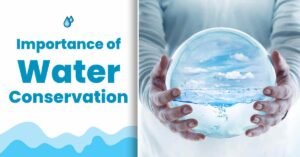 | Purpose | The purpose of the day is to bring about awareness and concern amongst people regarding freshwater resources and to promote a sustainable management system for water. |
| Theme | Celebration theme is different each year and often focuses on various approaches towards water conservation. |
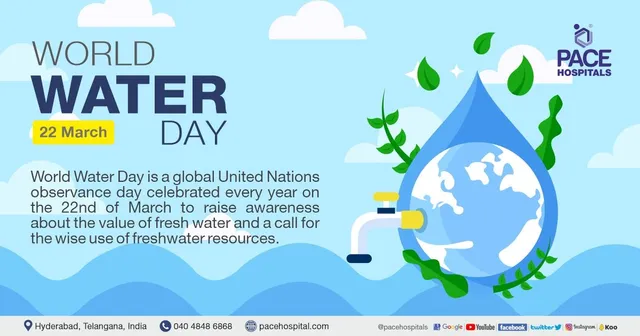
The Symphony at UNESCO Headquarters
On this pivotal day, we gather at UNESCO Headquarters in Paris, France. Distinguished speakers—heads of UN agencies, high-level officials—share insights. Their words ripple across the room, reminding us that water isn’t just a resource; it’s a bridge between hearts.
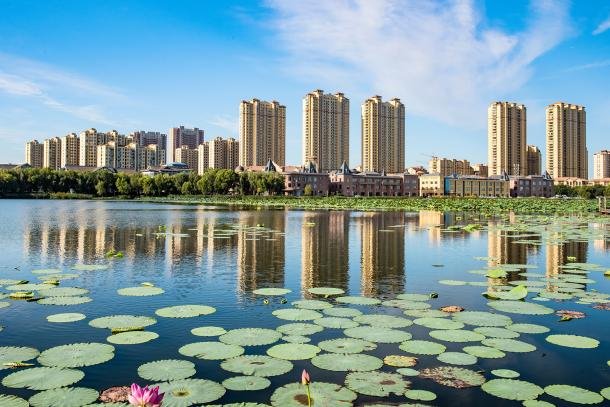
Art, Culture, and Insights
As sunlight dances on the Seine, we immerse ourselves in technical presentations. Field experiences come alive—the sweat of laborers digging wells, the laughter of children near a village pump. Art and culture echo the theme, painting water’s canvas with hope.
The Unveiling: United Nations World Water Development Report 2024
Picture this: The curtain lifts, revealing the United Nations World Water Development Report 2024. Its pages breathe life into data, weaving stories of prosperity and peace. It’s not just about numbers; it’s about humanity’s quest for balance.
Water, Prosperity, and Peace
The report whispers secrets: Water for prosperity and peace. It tells us that progress in one dimension—be it economic growth, education, or health—ripples into others. A well-fed child learns better; a thriving farmer nurtures peace. Water, like a silent diplomat, negotiates peace treaties in its gentle flow.
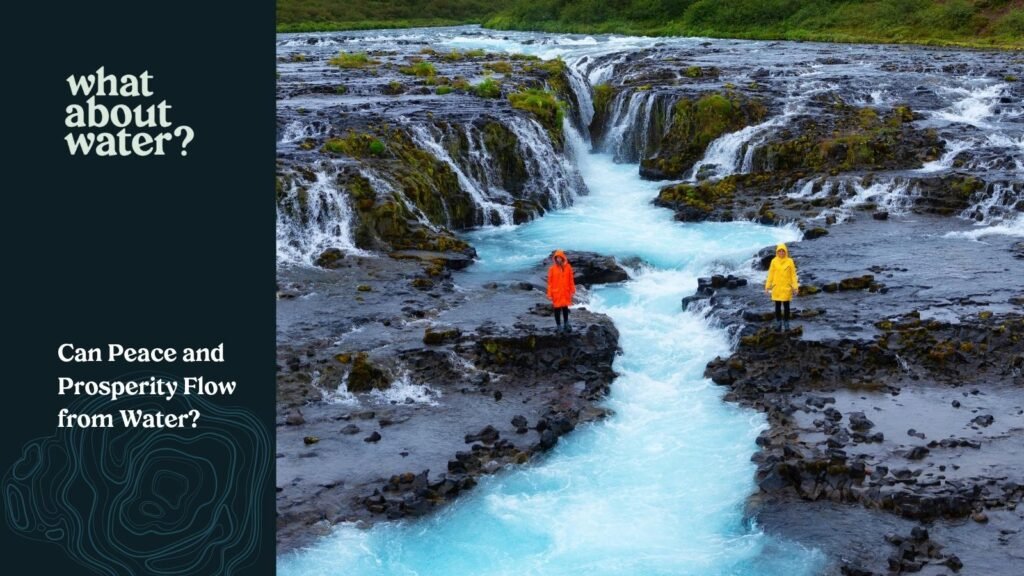
Your Role in the Symphony
Whether you’re a policymaker, an artist, or a curious soul, you’re part of this symphony. Explore the report’s findings, embrace its recommendations. Let’s turn the tide toward a world where water doesn’t divide but unites—a world where peace flows like a river.
Join the Conversation,
World Water Day 2024 isn’t just a date; it’s a melody. So, let’s hum it together. Join us—whether in person or virtually. Let’s celebrate water, not just as a resource, but as a promise of peace.
Water: The Lifeline We All Share
Water, the very essence of life, flows through our existence like a silent river. It quenches our thirst, nurtures our bodies, and sustains our communities. Yet, in the vast tapestry of our world, there exists a stark reality: a water crisis that touches the lives of nearly one billion people.
This crisis knows no borders; it is a global phenomenon. From the sun-drenched plains of South East Asia to the arid expanses of Africa and the rolling hills of North America, water scarcity casts its shadow. It is a crisis that begins with water, but its ripples extend far beyond mere hydration. Education, health, poverty—all are ensnared in its grasp, but perhaps none more so than women and children.
Let us peer into the lives of those caught in this relentless struggle. Imagine a family, their existence teetering on the edge of survival. They subsist on less than a dollar a day, their throats parched with thirst. The luxury of turning a faucet for clean water eludes them; they don’t even possess a faucet. Instead, it falls upon the shoulders of women and children to embark on a daily pilgrimage—a journey that spans hours—to the nearest river, pond, or lake. There, they collect water, exposed to the elements and the lurking germs that thrive in open water sources.
Time spent gathering water steals precious moments that could be devoted to learning, to literacy, to earning a livelihood. In Africa, some women dedicate more hours to this arduous task than any other activity in their day. The path they tread is treacherous; they bear the weight of forty pounds of water, alone and vulnerable. Many suffer injuries, and some face unthinkable dangers.
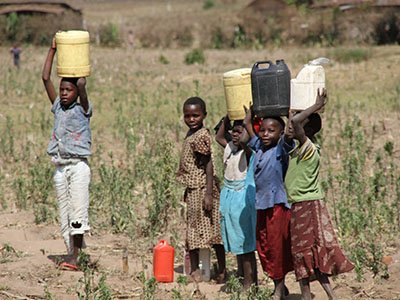
And when they return home, their meager bounty is tainted. The water they’ve collected harbors invisible threats—germs that bring forth diarrhea, dehydration, and even death. Children, especially the littlest among us, bear the brunt of these insidious invaders.
Yet, amidst this struggle, there is hope. Each day, a billion souls persevere, waiting for a lifeline. The water crisis is not insurmountable; solutions exist. Some are as ancient as the earth itself, like the hand-dug wells that bring clean water closer to those who need it. Imagine a safe water project nestled near a village—a beacon of possibility. It saves not just water, but also hours of a person’s life. It is the freedom to attend school, to gain an education, to work, to build a business, and to raise a family.
Africa alone could reclaim forty billion hours each year if clean water flowed freely. So, let us join hands, for water is not just a basic need; it is the thread that weaves our shared destiny. Together, we can quench the thirst of a parched world and turn the tide toward a brighter future—one drop at a time.
Water sufficiency in India
- Water is an essential commodity in daily life. It is one of the basic needs. Just like blood 70% of the human body is water. The earth first came into existence with water as its first byproduct. But the fact is becoming true that fresh water is getting depleted from the water bodies.
- Contaminated water in the remote areas when used for daily household purposes is dangerous for health. It is true that so many children in remote areas are losing their lives due to water shortage or contamination of water bodies.
- It is a sad fact that water on earth is getting depleted it is the prime duty of every citizen to save water and provide the needy ones with fresh water facilities. Drinking water is a daily habit that requires clean and fresh water. It is not possible to survive if drinking pure fresh water is not enough.
- The urban areas in India, especially, the metropolitan cities have great water facilities. The Indian government has been working on this essential water crises in the country.
- The farmers need water for the prosperity of the crops. But there have been water crises, especially in the rural areas in India, about the availability of fresh water for crops.
- The Kharif crops require sufficient water supply. When the Kharif seeds are sown and the monsoon doesn’t have proper water supply, the farmers face irreparable problems. Many of the farmers due to this, have been committing suicides as they cannot run their farming businesses due to water shortage.
- At the same time excessive rain in monsoon causes havoc to the farmers. the people from farming families have now been migrating to the urban areas in search of jobs after graduation, leaving their family farmer’s profession.
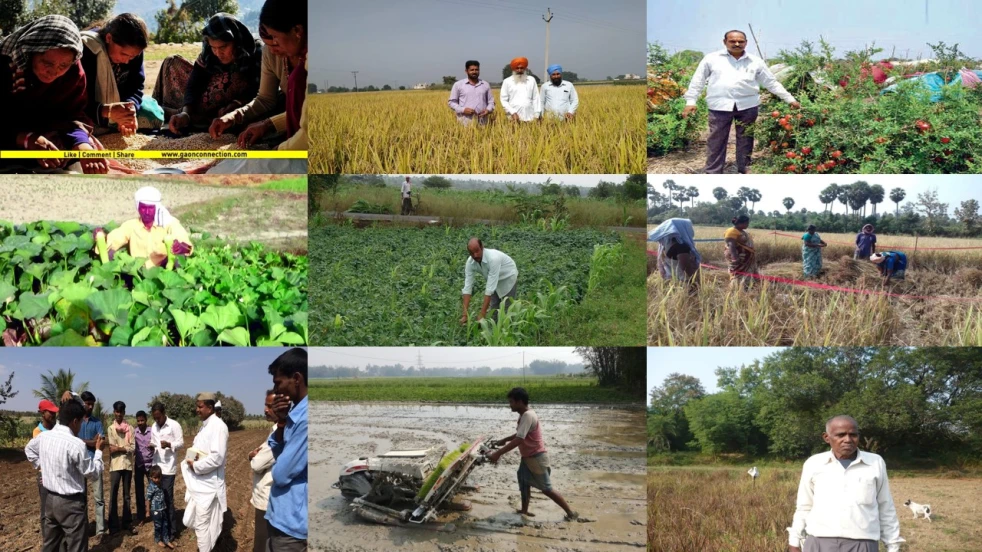
- Inspite of hard working labour work in the farms, the farmers hardly get any profitable annual income. Planting tress and protecting the nature is a water gain factor. With the depletion of forests for urbanization has caused the water bodies to decrease.
- Also dams built on the rivers require sufficient levels of water supply to be distributed in cities and different villages. Contamination of water in the last decade in India has reduced to a certain extent. Every citizen should still take efforts in this matter.
- India being a land of holy rivers, cleaning of water to provide the pilgrims with safe and healthy water is essential. There have been many initiatives that are being taken in this direction.
- With the global heat rising and is expected to rise, even more, irregular, inefficient and hazardous rainfall makes the human life more difficult.
- People in India pray daily and even walk long distances in search of fresh and pure water to live a daily life. The struggle to live and collect water in India in the remote villages has been increasing.
- Their two time meals have an affect on their daily lives. Always Feel blessed when you get enough water during your day as it solves and helps makes the day more productive. Proper food and water during the day is the prime to succeed in daily life.

